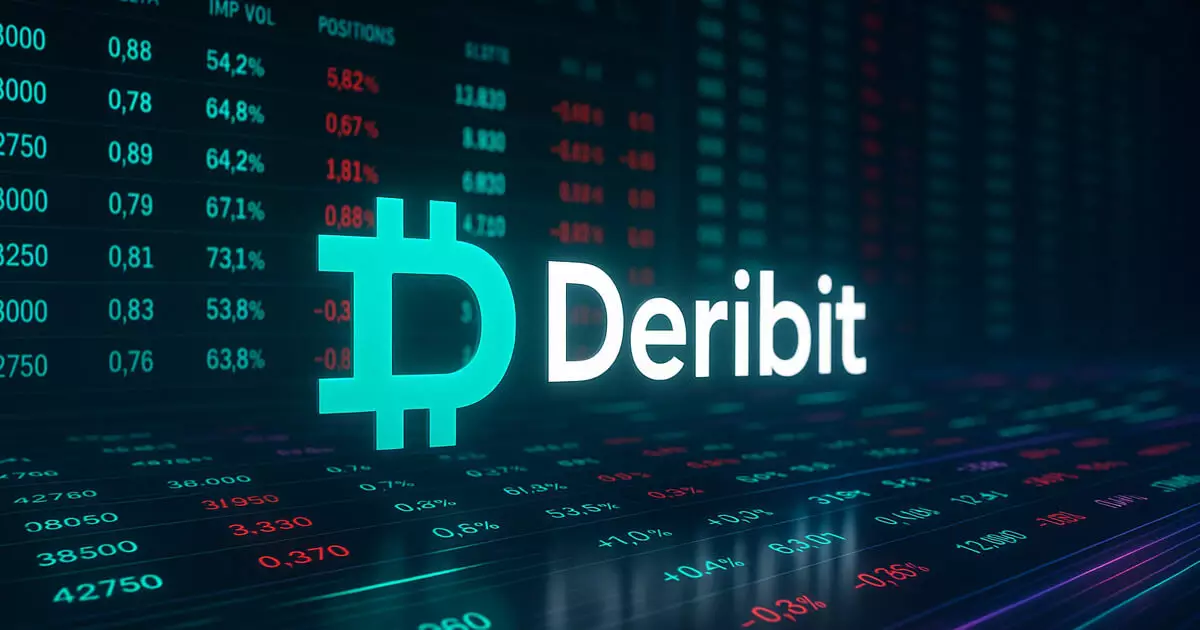In a bold move that could reshape the landscape of cryptocurrency trading, Coinbase has announced its intention to acquire the prominent derivatives platform Deribit for a staggering $2.9 billion. This acquisition, set to be the largest in Coinbase’s history, encapsulates the growing ambition of the cryptocurrency exchange to dominate the derivatives market—a sector that already represents a substantial chunk of daily trading volume across the globe. Deribit’s own prowess in this realm is evident; in 2024 alone, the exchange processed an impressive $1.2 trillion in total trading volume. But this deal is more than just numbers; it represents a strategic high-stakes maneuver in a competitive and volatile industry.
The Implications of the Acquisition
Deribit has established itself as a frontrunner with a robust infrastructure and a significant market share in crypto derivatives. The excitement expressed by Deribit’s CEO, Luuk Strijers, about the partnership signifies not only a merging of capabilities but also a shared vision to spearhead a new era in crypto derivatives trading. This alliance is particularly crucial as it allows Coinbase to integrate a suite of services—spot trading, futures, perpetual contracts, and options—under one comprehensive brand, enhancing its competitiveness against established offshore players. Given the complexity of crypto regulations worldwide, Coinbase’s pursuit of this deal suggests a confidence in a shifting political landscape in the U.S. enabling more favorable regulations.
Navigating Regulatory Challenges
However, the acquisition is not without its hurdles. The transfer of Deribit’s license, which has legal standing from the Virtual Assets Regulatory Authority (VARA) based in Dubai, will necessitate regulatory approval. Such procedures are standard in the finance world but can introduce delays and uncertainty in an industry that dreads prolonged inaction. The stakes are even higher given the existing scrutiny of cryptocurrency exchanges in the U.S. The recent battle lines drawn in the regulatory arena will dictate how swiftly Coinbase can integrate Deribit’s technologies and services into its existing framework. This is a double-edged sword; while a smooth transition can solidify Coinbase as a leader, any misstep could turn the acquisition into a costly blunder.
The Competitive Landscape is Shifting
Meanwhile, the competitive dynamics within the crypto market are evolving at a frantic pace. Just as Coinbase sets its sights on Deribit, rivals such as Kraken are also making strategic acquisitions to bolster their positions. Kraken’s purchase of futures broker NinjaTrader for $1.5 billion highlights a trend where major exchanges are racing to capture the burgeoning derivatives market. This fervent activity indicates a belief among these companies that achieving critical mass in derivatives trading could be a defining factor for long-term success in the cryptocurrency sector.
In this context, Coinbase’s acquisition of Deribit must be seen as both a strategic opportunity and a risky bet. The outcome of this deal could either propel Coinbase into the upper echelon of global exchanges or expose it to new vulnerabilities in the ever-shifting regulatory and market landscapes. As this saga unfolds, the eyes of both investors and enthusiasts will remain glued to Coinbase, hoping it navigates these turbulent waters with both foresight and agility.


Leave a Reply